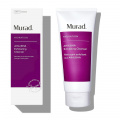What is Niacin? Find out as new research alleges too much of essential B vitamin may harm the heart
Uncover the latest research revealing how niacin, a vital B vitamin, might affect your heart. Learn why excessive intake could pose risks to your heart health.

-
Recent studies shed light on the potential harm of excessive niacin intake on heart health
-
Explore the correlation between elevated niacin levels and increased risks of heart attack
Niacin, a vital B vitamin required for a variety of bodily functions, has recently come under scrutiny due to the potential risks associated with excessive intake. New research suggests that niacin overconsumption may harm heart health, emphasizing the importance of cautious supplementation as per the Mayo Clinic. Let's look at what niacin is, where it comes from, what it does for you, and what some people are worried about.
The basics of Niacin: A crucial B vitamin
Niacin, also known as vitamin B3, is essential for converting food into energy and supporting the nervous and digestive systems. Niacin, which occurs naturally in foods such as yeast, milk, meat, tortillas, and cereal grains, is essential for overall health.
Dr. Stanley Hazen, chair of cardiovascular and metabolic sciences at the Cleveland Clinic's Lerner Research Institute, emphasizes its significance, saying, "Niacin is a B vitamin that's made and used by your body to turn food into energy. It helps keep your nervous system, digestive system, and skin healthy."
Risks of excessive Niacin intake unveiled by research
Recent studies published in the journal Nature Medicine have raised concerns about the potential negative effects of excessive niacin consumption on heart health. Dr. Hazen's research team discovered a substance called 4PY, which is produced in the body when niacin levels become too high. This finding prompted additional research, which included over 3,000 adults with or at risk of heart disease.
The studies found a link between elevated 4PY levels and an increased risk of heart attack, stroke, and death. According to the doctor, "Excessive amounts of niacin can trigger inflammation and damage blood vessels."
Reevaluating dietary recommendations and supplementation
In light of these findings, experts advise caution when taking niacin supplements and call for a revision of dietary guidelines. Dr. Robert Rosenson, director of metabolism and lipids at Mount Sinai Health System, emphasizes the need for moderation, saying, "This is a case where too much of a good thing can be a bad thing."
The recommended daily dose of niacin for adults is 16 milligrams for men and 14 milligrams for non-pregnant women. While most people get enough niacin from their diet, prescription niacin supplements are often used to control cholesterol levels. However, caution is advised, especially with high doses, as they can cause severe skin flushing, rapid heartbeat, nausea, liver damage, and diabetes.
ALSO READ: Foreigner's video showing 4 types of 'Indian head nods' goes viral; netizens find it relatable





 JOIN OUR WHATSAPP CHANNEL
JOIN OUR WHATSAPP CHANNEL



































































































